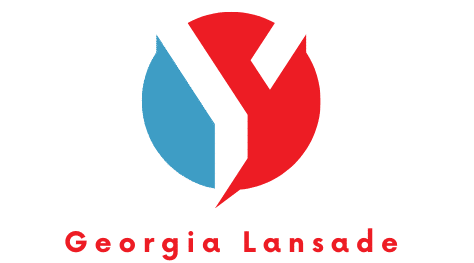How to leverage proptech innovations for enhancing commercial real estate value?

Welcome to the wonderful world of proptech. If you’re not familiar with the term, you’re in the right place. Proptech, or property technology, is a rapidly growing industry that is revolutionizing the way we buy, sell, and manage commercial real estate. This sector is leveraging technology to streamline operations, enhance user experience, and ultimately increase the value of the property. By harnessing the power of proptech, you can turn your commercial properties into more lucrative investments.
Understanding the Proptech Landscape
Now, let’s dive deeper into the world of proptech to understand its different facets and how it’s reshaping the real estate industry. Proptech is a broad term that encompasses a range of digital tools and solutions designed to simplify and enhance all aspects of the property industry. This can range from intelligent building management systems to smart investment platforms.
En parallèle : How can real estate developers integrate smart waste management systems in new projects?
In recent years, there has been an explosion of interest in proptech, with hundreds of new startups launching innovative solutions to traditional real estate challenges. This rapid growth has been driven by a combination of factors, including the wider adoption of technology and digital platforms, the increasing demand for data-driven decision making, and the need for more efficient and sustainable real estate management practices.
Proptech has the potential to transform every stage of the commercial real estate lifecycle, from the initial market research and investment decisions, through to the day-to-day management of properties and the eventual sale or lease. By leveraging proptech innovations, commercial property investors and managers can unlock significant value, making their properties more attractive to tenants and buyers, and ultimately increasing their return on investment.
A lire en complément : What are the key factors for success in waterfront real estate development projects?
Smart Building Technology
One of the most significant areas of proptech innovation is in smart building technology. These are systems and devices that use digital technology to automate and optimize various aspects of building operations, such as energy management, security, and tenant services.
For example, intelligent heating, ventilation, and air conditioning (HVAC) systems can use sensors and data analytics to automatically adjust the temperature and air quality in different parts of a building, based on occupancy levels and weather conditions. This not only enhances the comfort and well-being of occupants, but also reduces energy consumption and costs.
Similarly, smart security systems can use a combination of video surveillance, access control, and artificial intelligence to provide a safer and more secure environment for occupants. By integrating these systems with a central management platform, property managers can monitor and control all aspects of their building operations from a single dashboard, making their jobs easier and more efficient.
Data-Driven Investment and Management
Another key area of proptech is in the use of data and analytics for investment and management decisions. By leveraging data, investors and managers can make more informed decisions about where to invest, how to price their properties, and how to manage their portfolios.
For instance, geospatial and demographic data can be used to identify high-growth areas and market trends, helping investors to spot promising investment opportunities. Similarly, data on rental rates, occupancy levels, and tenant satisfaction can help managers to optimize their pricing strategies and tenant services, enhancing the profitability and competitiveness of their properties.
There are now many proptech platforms that provide these kinds of data-driven insights and tools. For example, real estate investment platforms can provide detailed market analysis, property valuations, and investment projections, helping investors to make smarter investment decisions. Similarly, property management platforms can provide real-time data on building operations, tenant satisfaction, and financial performance, helping managers to optimize their operations and improve their bottom line.
The Future of Proptech
Proptech is not just a buzzword or a passing trend. It is a fundamental shift in the way the real estate industry operates, driven by the rapid advancement of technology and the growing demands of the modern property market. As the proptech industry continues to evolve and mature, we can expect to see even more innovative solutions and applications.
Already, cutting-edge technologies such as artificial intelligence, Internet of Things (IoT), and blockchain are being used to create new proptech solutions. For instance, AI can be used to automate property management tasks, analyze market trends, and even predict future property values. IoT devices can provide real-time data on building operations, while blockchain can provide secure and transparent property transactions.
In the future, we may see even more radical innovations, such as fully automated buildings, virtual reality property tours, and smart cities integrated with multiple proptech solutions. These advances will not only enhance the value and attractiveness of commercial properties, but also improve the quality and sustainability of our built environment. So, if you’re in the real estate business, you need to stay on top of these developments and start leveraging proptech innovations to enhance the value of your commercial properties.
Proptech Amenities for Commercial Real Estate
As we delve deeper into the proptech landscape, it’s crucial to highlight the role of proptech amenities in enhancing the value of commercial real estate. Proptech amenities are essentially technology-enabled features that improve the functionality and attractiveness of a property, contributing to a superior tenant experience.
For instance, smart locks and access control systems allow tenants to enter and exit their premises securely without the need for traditional keys or cards. Instead, they can use their smartphones or biometrics, offering a more convenient and secure alternative. Similarly, digital concierge services can provide tenants with on-demand support for a range of tasks, from booking meeting rooms to arranging parcel deliveries.
Beyond the convenience factor, these amenities can also provide real-time data for property managers. This can include data on usage patterns, tenant preferences, and even predictive maintenance, enabling them to manage their properties more efficiently and proactively.
In addition, proptech amenities can significantly enhance a property’s market appeal. With the modern tenant placing a high premium on technology and convenience, properties equipped with proptech amenities are likely to command higher rents and occupancy rates. This, in turn, can significantly enhance the return on investment for commercial real estate investors.
The Impact of Augmented and Virtual Reality on Proptech
Augmented reality and virtual reality are two emerging technologies that are having a profound impact on the proptech market. These technologies are opening up new possibilities for how we view and interact with commercial real estate, offering unique ways to enhance property value.
For instance, virtual reality can be used to create highly immersive and interactive property tours. Prospective tenants or buyers can explore a property in 3D from the comfort of their own homes, walking through different rooms, viewing the layout, and even visualizing how their own furniture would fit in the space. This not only provides a more engaging and personalized property viewing experience, but also enables property marketers to reach a wider audience.
Similarly, augmented reality can be used to enhance property tours and presentations. For example, AR can overlay digital information on physical spaces, such as showing how a space would look when furnished or highlighting the energy efficiency features of a building.
Both of these technologies can provide significant benefits for real estate professionals. For property managers, they can make property showings more efficient and compelling, helping to attract and retain tenants. For investors, they can provide a more detailed and realistic view of potential investments, aiding in decision making. As such, embracing these technologies can be a key strategy for leveraging proptech to enhance the value of commercial real estate.
Conclusion
The world of proptech is an exciting and rapidly evolving landscape, offering a wealth of opportunities for enhancing the value of commercial real estate. From smart building technology and data-driven investment tools to proptech amenities and virtual reality experiences, these innovations are transforming the way we buy, sell, and manage properties.
For commercial real estate professionals, the challenge is to stay ahead of these trends and understand how to leverage them effectively. This will require a combination of technological savvy, strategic thinking, and a deep understanding of the modern property market.
In conclusion, harnessing the power of proptech is no longer optional for today’s real estate industry. It is a strategic imperative for enhancing property value, improving tenant experience, and staying competitive in the digital age. As the proptech revolution continues to unfold, the commercial real estate sector will need to adapt and innovate, or risk being left behind.
